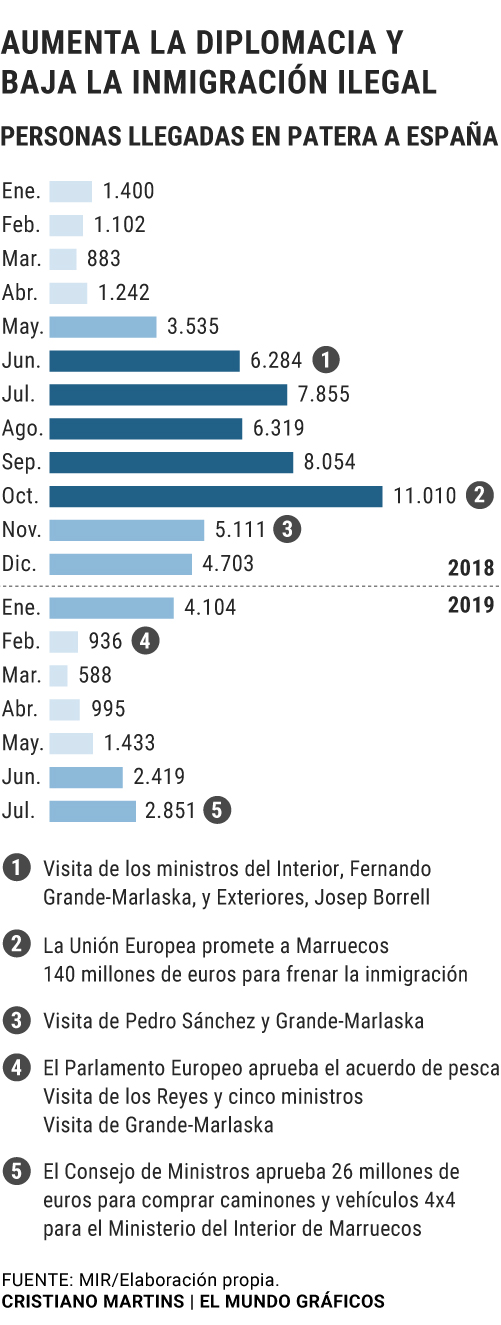A joint research team made up of Spanish police, French gendarmes and Nigerian agents has managed to contain the historic route of Agadez ( Niger ) this year, which is the epicenter of African immigrant departures to Europe . Sources of the fight against clandestine immigration explain that this team led by Spain and financed by the EU "has managed to dismantle all immigrant passers of Agadez and cut the route to the north." Between 2016 and 2019, thanks to the actions of the General Police and Immigration General Police Border, 300 vehicles were seized and 500 traffickers arrested.
Agadez is the city where many of the smugglers of the Sahara live , a strategic enclave of salt caravans in the 15th century and one of the most important migratory crossroads in Africa , where most sub-Saharan people go to Algeria. or to Libya on its way to Europe. Transit had decreased thanks to EU support and a pioneer law from the Government of Niger that outlawed the transfer of migrants, but the leading Spanish police in this country have managed to narrow it further.
The same sources add that many fewer people are arriving in Morocco, mostly belonging to the Algerian immigrant exchanges. And they say that the problem "in the medium term" will be in Nigeria , where the population will exceed 400 million inhabitants in 2050.
Finance the "second lines"
The next plan, they say, is to finance countries like Mauritania , Niger and Chad , the so-called "second lines", to prevent the displacement of immigrants to North Africa.
Izabella Cooper , spokesman for the European border control agency Frontex , notes a "declining trend" in migratory pressure towards Spain and says that "the main factor that contributed to the fall was the implementation of stricter measures taken by the Moroccan authorities and the close cooperation with the Spanish authorities. " "The EU is also providing support to improve the border management capacity of the Moroccan authorities," he said.
Remember that Morocco remains the main importer to Spain of undocumented nationalities of all nationalities, well above Algeria and also from Senegal and Mauritania, because almost no canoes arrive in the Canary Islands due to European cooperation with these countries. Of the more than 13,000 irregular immigrants intercepted at the Spanish maritime borders in the first seven months of 2019, "more than 12,300 arrived from Morocco."
Cooper points out that the mafias that operate in Morocco are selective and have adopted a new strategy of "diversification" of the places of departure "by nationality": "They organize Moroccan departures from beaches of the Atlantic coast, while the departure of sub-Saharan migrants it is done along the Mediterranean coast of Morocco. "
According to the criteria of The Trust Project
Know more- Morocco
- Algeria
- Spain
- Africa
- Europe
- Nigeria
- Canary Islands
- National Police
- Libya
- Civil Guard
MoroccoMohamed VI: from 'reformist' monarch to gendarme of southern Europe
Immigration The B side of the descent of the paws
EconomySummer Award for its use of ICT and for digital transformation

